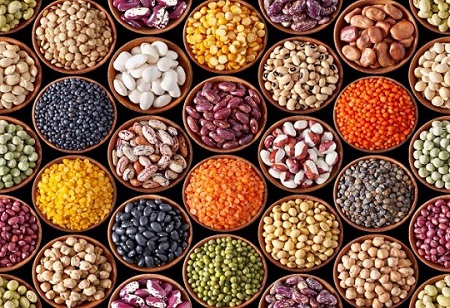As the
seed is the most critical input for sustainable agriculture, the response of all other inputs depends on the seed’s quality to a larger extent, and is estimated that the direct contribution of quality seed alone to the total production is around fifteen to twenty percent based on the crop. Furthermore, with efficient management of other inputs, it can be increased up to 45 percent.
The
Indian seed market is anticipated to register a Compound Annual Growth Rate of 6.8 percent until 2027, as per a recent report by Mordor Intelligence. Unfortunately, the pandemic along with the restrictions imposed by the governments halted the production, as well as certification & international trade of seeds with serious consequences for farmers. However, vegetable seeds contributed the most with a 30 percent share, & cotton with about 18 percent, despite the numerous restrictions in the turnover of the seeds industry for 2021.
The developments in the Indian seed industry specifically in the last three decades are very prominent. National Seed project phases from 1977 to 1991 strengthened the seed infrastructure which was most needed and relevant around those times, which was done through a major restructuring of the seed industry by the Indian Government and this could be termed as a 1st turning point in the shaping of the organized seed industry. Another major milestone in the Indian seed industry was the introduction of the New Seed Development Policy from 1988 to 1989. This transformed the very character of the industry.
A surge in Hybrid seed penetration
To address the rise in the food demand-supply gap in India there has been a surge in hybrid seed penetration in numerous crops. Owing to the constantly increasing population and stagnant growth seen in the arable land, the per capita arable land has been declining and these factors coupled with poor crop productivity are going to result in pressure on the food supply. Hybrid seed penetration is high in cotton, corn, and others, in the country. Since in India the patenting process is not very vigorous it enables enterprises to replicate better-performing seeds in the marketplace.
A pioneer in the distribution of vegetable seeds and one of the first enterprises to bring hybrid vegetable seeds in India is Namdeo Umaji Agritech.
“We have a DSIR - registered Research & Development center. We continue doing our market research and at the same time breed our varieties, by which we can transform the market and introduce newer and better crop varieties to the Indian market. The newer varieties include a higher yield and disease tolerance for farmers to ensure the farmer's gain throughout the season,” says Shlok Balinge, Director, Namdeo Umaji Agritech.
Furthermore, after the discovery of a successful hybrid, seed multiplication needs multiple rounds of sowing. Hence, the rise in government initiatives & investments by industry players are anticipated to drive this market.
Tailor-made seeds
The role of the seed industry has been substantial in the major advances the country has made in agriculture in the last 40 years. Although the evolution of this industry has resulted in a parallel growth in agricultural productivity, meeting the diverse requirements of farmers is still a challenge.
This is where Rasi Seeds comes into the picture. As an agriculture firm it offers quality hybrid seeds and customized solutions to farmers. What is unique about the company is the tailor-made seeds it provides clients for every micro-environment keeping in mind their individual needs. The company also provides smart seeds that can earn sustained profit for every cultivator. The team of scientists at Rasi seeds leverages their expertise in Germplasm to cater to the requirements of the farmers.
“It is important to ensure both food and nutritional security for the country's growing population. Seed is one of the key inputs that can deliver innovative solutions to address the agricultural challenges we have,” Ramasami, Chairman and Managing Director of Rasi Seeds, a founding member of FSII said.
Adoption of genetically modified seeds
The seed industry is one among the most R&D-intensive industries. Research & development spending varies between enterprises based on every company’s choice of techniques & strategy. The adoption of genetically modified seeds is higher among farmers owing to erratic climatic conditions and a surge in demand for food from consumers.
One such company offering high-quality seeds to farmers is SEMANAC Vegetable Seeds. The activity of seed manufacturing is controlled by well-qualified staff. Also, the seeds of SEMANAC are tested in both Vivo and Vitro for quality performance. The company’s state-of-the-art Research & Development facility possesses 10000 plus germplasm of various crops. SEMANAC conducts genetic purity and physical purity tests of the seeds.
“What differentiates us from the other players is the increasing awareness about our products among progressive farmers and the yield, and profitability they earn by using our products. Another differentiator is that we are an emerging company in this landscape and our products are on par with the leading companies,” Dr. Santosh, Director, Semenac Vegetable Seeds.
The way ahead
State Farm Corporation of India and other agencies that are into seed production has built up a hardcore of competent as well as experienced seed producers & seed dealers in numerous parts of the country in the last forty years. They possess the required level of specialization & competence in handling & managing several segments of seed improvement on scientifically sound & commercially viable terms.
